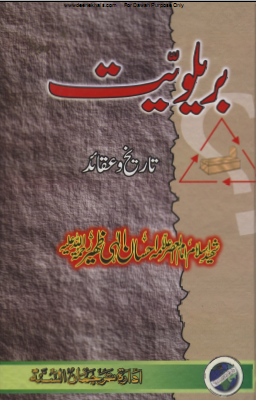The origin of the word and its derivation:
There are many opinions regarding the origin of this word. They may be summarized as follows:
1) Some Sufis like to link the name to Ahlus-Sufaah (people of As-Suffah) who were at the time of the Prophet (ﷺ). They claim that there are great resemblances between the Sufi adept and Ahlu-Suffa. Those were poor people from the Muhaajireen who migrated from Makkah to al-Madeenah fleeing the persecution of the pagan Arabs. They were driven away from their homes and had neither money nor families, nor a place to stay. The Prophet (ﷺ) and the companions (ﷺ) assisted them and he (ﷺ) allowed them to stay in a courtyard by his Mosque. The fact, however, is that those poor Muslims resorted to the Mosque out of necessity. Their numbers increased at certain times and decreased at other times. Some of them stayed longer than others. So they were not a specific group united on something. Sufism in its early stages stressed the concepts of detachment from the worldly life, poverty, isolation, etc. The people of As-Suffah did not choose such concepts. They were in need and the Muslims helped them. They did not isolate themselves. In fact, they engaged in Jihaad whenever it was announced. When Allaah, the Most High, bestowed from His bounties upon the Muslims, some of them became free of want and were among the richest of the Sahaabah and others became leaders in some Muslim lands. The sufis would like to establish a linkage with the Prophet’s era and claim as well that he approved the early seed of Sufism exemplified in Ahlus-Suffah. In addition, and from a linguistic point of view, to derive Sufism from As-Suffah is wrong, because the correct term would be ‘Suffism’ and not Soofism.
2) As-Saf al-Awwal (الصف الأول): Some Sufis claim that Sufism comes from As-Saff al-Awwal (First Row) “standing before the Hands of Allaah, the Most Mighty and Most Majestic, by virtue of the high determination and eagerness towards Allaah in their hearts and by positioning their innermost before Him.” This term is far from being linguistically applicable for if it were so, the term would be
Saffee (صفي).
3) As-Safaa’ (الصفاء): Other Sufis claim that the term is derived from As-Safaa’ which means clearness, purity, sincerity. This is disputed by other Sufis and linguistically it does not fit. The derived term would be Safwee, Safaawee or Safaa’iee not Soofee.
4) Soofah (صوفه): It is said that their title is derived from
‘Soofah,’ the name of some people who used to serve the Ka’bah in the pre-Islamic era (Jahiliyyah), and who used to go in seclusion in the Sanctified Mosque (Al-Masjid Al-Haraam). (1) Although this affiliation may be linguistically sound, it is rejected because:
-
(a) The people of “Soofah” were not known well enough to be remembered by most of the early Sufis.
(b) Had this affiliation been correct, it would have been known in the times of the Sahaabah. However, such an affiliation was not known then.
(c) True devout worshippers do not accept to be affiliated with a tribe from the Jaahiliyyah times. (2)
5) Sophia (سوفية): The historian and philosopher Abu Rayhaan Al-Bayrooni (d.440 AH) mentioned that the word “Soofism” springs from the Greek term “Sophia” meaning wisdom. The Greek were the first to speak of the concept of Wahdat Al-Wujood (Unity of Existence: that all existence is a single reality which is Allaah, and that everything we see is one aspect of Allaah’s Essence). Though one cannot confirm nor deny the authenticity of this derivation, it is certain that Sufism during its course of development was highly influenced by the Greek and Hindu philosophies.
6) As-Soof (الصوف): Many Sufis from the past and present consider that the term Sufism refers to the wearing of woolen clothing (Soof). This is also the opinion of Shaykh- ul-Islam Ibn Taymeeyah. Also Ibn Khaldoon inclined to this opinion in his famous Muqaddimah. Many orientalists are also of this view. Although this is the most common opinion regarding the derivation of the term, it is disputed by some Sufis like Al-Qushayree (d.465 AH) who claimed that the Sufis were not specialized in wearing woolen clothes.4 Nevertheless, the desire by many Sufis to affiliate their name with this origin explains their exaggeration in matters of worship, detachment from the worldly life, abandoning lawful means of earning, property, children, etc. On the other hand, wearing woolen clothes is not something meriteous or raises the status of the Muslim with Allaah. Had it been so, the Prophet (ﷺ) would have preferred it to other clothes. In fact, he (ﷺ) disliked the odor of the wool upon sweating as related by ‘Aa’isha. She said:
“I made a black cloak for the Prophet (ﷺ) and he put it on; but when he sweated in it he noticed the odor of the wool, he threw it away. The
narrator said: I think he said: he liked good smell.” (4)
And in the agreed upon Hadeeth related by Anas, he (ﷺ) said:
“The most beloved garment to the Prophet (ﷺ) to wear was the Hibara (a kind of Yemenese cloth made of cotton used to be from the best to wear).” (5)
7) The term is not derived: This opinion is held by some important figures in Sufism like al-Qushayriee and al- Hajooyari (d.456 AH). They say it is just a given title. Such a claim is a strange and very weak one, because none of titles adopted by any sect lacks a meaning associated with it.
These were the most important sayings regarding the origin of the word “Soofism”. Such differences regarding this term is due to the mystic nature that folds Sufism in esoteric concepts which is open to all kinds of interpretations Any sufi master could add his own methodology and concepts based upon his own experiences (Thawq). This rendered Sufism limitless in terms of its doctrines and ways. The case is even worse when it comes to the meaning of ‘Sufism.” One of the leading Sufi contemporary figures, Dr. ‘Abdul Hameed Mahmoud said: “The opinion regarding the meaning of it [At-Tasawwuf] did not yet reach a conclusive result.”(6)
As-Siraaj At-Tusi (d. 378 AH) mentioned that the definition of Sufism exceeds a hundred, while As-Sahrawardee (d. 632 AH) related that the saying of the Sufi shaykhs about the meaning of Tasawwuf exceeds one thousand. One of the latter Sufis by the name of Ibn ‘Ajeebah (d. 1224 AH) related that shaykh Zarrooq (d. 889 AH) mentioned that it reached about two thousand definitions. The definitions describe Sufism as being linked to concepts and practices as well. They range from poverty, perseverance, seclusion, withdrawal from the world, secrecy, deception, depriving the soul, wondering, singing, dancing, wearing wool clothes, ecstasy, inward transformation, spiritual development, all the way to Wahdat Al-Wujood(7) In fact, careful study of its history and of its men, brings one to the same conclusion that there is no specific and comprehensive meaning of Sufism. Despite this, it can be easily said that it represents an accommodation of beliefs, experiences (highly stressed), philosophies, and methodologies of varied degrees of divergence from the Qur’aan, authentic Sunnah, and the way of the Salaf. Largely comprised within such accommodation are certain fundamental matters that shape Sufism, mainly:
-
1-Limitless figurative interpretation of the texts and/or the sayings of their masters.
2-Classifying the Deen into Thaahir (Sharee’ah) applicable to the common Muslims and Baatin (Hidden) known only to the Masters and mystics.
3-Accommodation of any deviation in matters of creed, worship, or morals. The extreme Sufis accommodate all creeds and all sorts of innovations.
4-The deviated relationship between the Master and the disciple.
5-The state of Kashf claimed by Masters in the Sufi orders in which they perceive and witness all of the realities of existence as well as those of the Ghayb (unperceived realities).
6- Emphasizing Manaamaat (dreams), fabricated stories and/or ahaadeeth, as well as Shatahaat (intense and wild emotional state of excitement and agitation arising form what they call sudden Divine touches and during which the mystic utters unlawful innovated and mystic words, hallucinations and in many cases plain Kufr). Yet they say their utterances are due to the mystics being in a state of spiritual intoxication, e.g. “Praise be to me (subhaani),” and “Under my robe there is only god.
ــــــــــــــــــــــــــــــــــــــــــــــــــــــــــــــــــ
1) Imaam Ibnul Jawzee supported this view in his book Tablees Iblees, p. 201.
2) See Majmoo’al-Fataawaa by Shaykhul Islam Ibn Taymeeyah, vol. 11, p. 6.
3) Ar-Rissalah Al-Qushayriyyah, p. 126, published by Daar al-Kitaab Al-‘Arabi, Beirut (1957).
4) Reported by Abu Dawwod (English Translation no. 4063) and Ahmad in his Musnad (6:132, 144, 219, 249) and others. Al-Haakim said: “It is authentic according to the conditions set by al-Bukhaari and Muslim,” and Ath-Thahabi agreed. Al-Albaani reported it in As- Saheeha (2136).
5) Agreed upon. See Saheeh Al-Bukhaari, vol. 7, no. 704.
6) Abhaath fit-Tasawwuf, p. 153 (Taqdees, p. 40)
7) See Taqdees Al-Ashkhaas, pp. 40-44, Masaadir At-Talaqee, pp. 35-37, and At-Tasawwuf: Al-Mansha’ wal Masaadir, pp. 36-39.
by Shaykh Saleh As-Saleh




